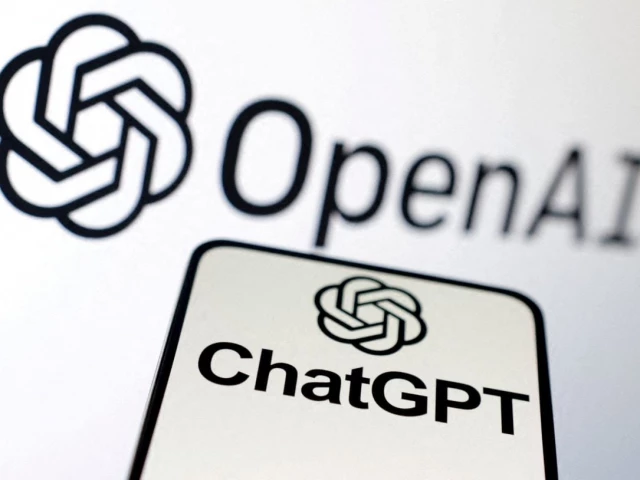PayPal and Global Citizen have joined together to celebrate small businesses that are transforming commerce and driving social and environmental impact.
The Global Citizen PayPal Small Business Impact Awards recognize entrepreneurs and small business owners who are driving tangible change in their communities by demonstrating a deep commitment to equity and sustainability in their business practices. The award highlights innovative leaders and social entrepreneurs who have developed products and services with a positive social or environmental impact.
We are thrilled to announce the five selected winners for the first year of this award. From sustainable design and clean mobility to food systems, menstrual equity, and wildfire prevention, these five founders are using business as a tool for transformation.
The five winners each received a $25,000 USD cash prize, and were connected to marketing and brand activations to accelerate their work and impact. In addition, each winner received in-person masterclass training with Global Citizen’s marketing and social media teams.
All five award winners were flown out to South Africa to take part in Global Citizen NOW: Johannesburg, on Friday, Nov. 21, at The Sandton Convention Center. At the summit, they participated in a panel to discuss their businesses, how they made an impact in their community and officially received their awards. Now, let’s meet this year’s exceptional winners!
Filip Lundin, CEO and Founder of Sopköket, Sweden
2025 Global Citizen PayPal Small Business Impact Awards winner, Filip Lundin, CEO & Founder, Sopköket AB speaks on stage during Global Citizen NOW: Johannesburg on November 21, 2025 in Johannesburg, South Africa. Image: Jemal Countess/Getty Images for Global Citizen
Globally, around 13.2% of food we grow is lost before it even reaches the retail shelves and an estimated 19% is wasted in our homes, supermarkets and restaurants all together. This food waste is also a major contributor to climate change, accounting for 8–10% of global greenhouse gas emissions.
Filip Lundin, the founder and CEO of Sopköket, an award-winning Swedish social enterprise, is on a mission to address this problem by transforming surplus food into delicious catering options and circular frozen meals. Sopköket employs a circular and financially sustainable model that aims to reduce food waste, donate meals, and create employment opportunities.
Half of the kitchen team comes from marginalized backgrounds and Sopköket collaborates with over 35 partner organizations while catering to clients such as Spotify, Marshall, and PayPal. A serial entrepreneur since the age of 16, Lundin lectures globally with Wharton University and the EU on food waste reduction and legislative change. Now preparing for international expansion with larger production kitchens and a SaaS solution for grocery kitchens, he also advocates for laws enabling Scope 4 CO₂ accounting — proving that sustainability and profitability can truly coexist.
Since 2015, Sopköket has rescued 150 tons of food waste and donated over 90,000 meals, and earned 4 of Sweden’s biggest sustainability awards within the food sector.
Franco Rodriguez Viau, CEO & Cofounder of Satellites on Fire, Argentina
:focal(2544,1696)/https://media.globalcitizen.org/27/9b/279b8381.jpeg) 2025 Global Citizen PayPal Small Business Impact Awards winner, Franco Rodriguez Viau, CEO & Co-Founder, Satellites on Fire speaks on stage during Global Citizen NOW: Johannesburg on November 21, 2025 in Johannesburg, South Africa. Image: Jemal Countess/Getty Images for Global Citizen
2025 Global Citizen PayPal Small Business Impact Awards winner, Franco Rodriguez Viau, CEO & Co-Founder, Satellites on Fire speaks on stage during Global Citizen NOW: Johannesburg on November 21, 2025 in Johannesburg, South Africa. Image: Jemal Countess/Getty Images for Global Citizen
Each year, wildfires cause serious damage to the environment, wildlife, human lives, and infrastructure across regions from Canada and the United States to the Amazon and the Arctic, as well as in Africa, Asia, and Europe.
Satellites on Fire is addressing this critical issue by developing an AI-powered early alert system designed to detect fires rapidly and efficiently. The technology uses real-time satellite data, tower cameras, forecasts, and proprietary AI to detect wildfires up to 35 minutes faster than NASA, ultimately saving lives, livelihoods, and protecting ecosystems. The system is protecting 56 million hectares across 19 countries and preventing 400+ wildfires in recent months.
Backed by MIT, Techstars, the UN Green Climate Fund, and Reddit’s founder, Alexis Ohanian, Satellites on Fire are proving that innovation can stop wildfires before they spread and safeguard vulnerable communities and ecosystems around the world.
Franco Rodríguez Viau, an Argentinian entrepreneur and the CEO and co-founder of Satellites on Fire, has dedicated his career to leveraging technology for global environmental impact. After witnessing the devastating effects of wildfires in Argentina, at just 16 years old, Viau co-founded the organization to mitigate these disasters. His ongoing work continues to advance innovation at the intersection of technology, sustainability, and human resilience.
Kunjpreet Arora, CEO of Angirus, India
:focal(2081,1387)/https://media.globalcitizen.org/f0/42/f0427768.jpeg) 2025 Global Citizen PayPal Small Business Impact Awards winner, Kunjpreet Arora, CEO of Angirus speaks on stage during Global Citizen NOW: Johannesburg on November 21, 2025 in Johannesburg, South Africa. Image: Jemal Countess/Getty Images for Global Citizen
2025 Global Citizen PayPal Small Business Impact Awards winner, Kunjpreet Arora, CEO of Angirus speaks on stage during Global Citizen NOW: Johannesburg on November 21, 2025 in Johannesburg, South Africa. Image: Jemal Countess/Getty Images for Global Citizen
The buildings and construction sector is a major contributor to global emissions, responsible for 37% of greenhouse gases. This is largely due to the production and use of traditional materials like cement, steel, and aluminum, all of which have a huge carbon footprint.
Angirus, a climate-tech startup, is tackling this issue by creating sustainable alternatives to conventional construction materials. The company transforms plastic and construction waste into Wricks®, high-strength bricks made without cement, burning, or excessive water. This innovative solution not only produces durable, waterproof and thermally efficient building materials, but also reduces landfill waste and carbon emissions.
Angirus is shaking up construction in India by using micro-manufacturing to put production in local hands. The result? More green jobs, lower costs, and a cleaner planet. With over 100,000 Wricks® already out there, they’re proving sustainability and impact can go hand in hand. Kunjpreet Arora, co-founder and CEO of Angirus, brings a passion for tackling systemic environmental issues through practical and scalable innovation. With a background in civil engineering and as an alumna of IIM Indore, her leadership and work has gained recognition from notable organizations such as Forbes Asia, TiE Global, Netflix, the Government of India, the Clinton Global Initiative, and the World Economic Forum.
Somnath Ray, CEO and Co-founder of CLIP, USA
:focal(2117,1411)/https://media.globalcitizen.org/f7/a9/f7a92b7f.jpeg) 2025 Global Citizen PayPal Small Business Impact Awards winner, Somnath Ray, CEO & Co-Founder, CLIP speaks on stage during Global Citizen NOW: Johannesburg on November 21, 2025 in Johannesburg, South Africa. Image: Jemal Countess/Getty Images for Global Citizen
2025 Global Citizen PayPal Small Business Impact Awards winner, Somnath Ray, CEO & Co-Founder, CLIP speaks on stage during Global Citizen NOW: Johannesburg on November 21, 2025 in Johannesburg, South Africa. Image: Jemal Countess/Getty Images for Global Citizen
The transport sector is responsible for 13.7% of global greenhouse gas emissions and remains heavily reliant on fossil fuels. Transitioning to sustainable transportation solutions is urgently needed. However, barriers such as the high cost of options like e-bikes can limit their widespread adoption and accessibility.
That’s where CLIP, a Brooklyn-based clean mobility startup steps in. CLIP is working to make e-bike technology more accessible as part of its mission to combat climate change. They have launched the world’s first and only Plug & Play device that upgrades any bike into an e-bike — no tools or pre-installation required. CLIP is 4x less expensive than the average e-bike and is patented in 47 countries.
After the success of its plug-and-play device, CLIP, is piloting BOLT, their newest and more affordable motor unit designed for emerging economies. BOLT retails for $100, is 20 times less expensive than the average e-bike, and can immediately motorize the 2 billion bikes already in circulation and eliminate up to 5% of carbon emissions globally.
Somnath Ray, the CEO and co-founder of CLIP, is making urban commuting more sustainable through affordable e-bike technology. With a background as a design technologist and entrepreneur, he has been recognized by MIT Tech Review as a top innovator. With over 20 years of experience, Ray has dedicated his career to the development of sustainable transportation solutions.
Zizipho Ntobongwana, CEO of Sheba Feminine, South Africa
:focal(2135,1423)/https://media.globalcitizen.org/bc/31/bc3133ec.jpeg) 2025 Global Citizen PayPal Small Business Impact Awards winner, Zizipho Ntobongwana, CEO, Sheba Feminine speaks on stage during Global Citizen NOW: Johannesburg on November 21, 2025 in Johannesburg, South Africa. Image: Jemal Countess/Getty Images for Global Citizen
2025 Global Citizen PayPal Small Business Impact Awards winner, Zizipho Ntobongwana, CEO, Sheba Feminine speaks on stage during Global Citizen NOW: Johannesburg on November 21, 2025 in Johannesburg, South Africa. Image: Jemal Countess/Getty Images for Global Citizen
Across the world, millions of women and girls are still struggling to access affordable menstrual products necessary for their menstrual health. This issue of period poverty can lead to missed school days and work days and ultimately, negatively affect their overall well-being. Sheba Feminine is on a mission to enhance menstrual health by providing sustainable, eco-friendly solutions while advocating menstrual equity.
Sheba Feminine products include organic and biodegradable pads, tampons, panty liners, menstrual cups, period underwear, and bamboo wipes, all designed to protect both people and the planet. They’re more than just a product provider, as they tackle period poverty through education, outreach, and partnerships with schools and NGOs. Soon they’ll be launching “Blud”, a youth-focused brand, and “Bluddy”, a data-light, multilingual period tracking app.
As the Founder and CEO, Zizipho Ntobongwana focuses her work on sustainable product innovation and menstrual equity, while leading community programs like “Pay for a Pal’s Pads,” which tackles period poverty through education and distribution. Shea Feminine is reshaping menstrual care in Africa through innovation, accessibility, and social change.
This year’s Global Citizen PayPal Small Business Impact Award winners show how powerful local leadership can be when innovation meets purpose. Each entrepreneur is demonstrating that small businesses can drive meaningful change from advancing sustainability and protecting the planet to expanding equity, strengthening communities, and reshaping entire industries for the better.
As we celebrate their achievements, we’re reminded that progress is a collective effort. By championing mission-driven small businesses, we are investing in a more inclusive and resilient future for everyone. To learn more about how PayPal and Global Citizen are empowering consumers and business owners to take meaningful steps in strengthening their communities, explore the initiatives driving this partnership forward. Together, we can help ensure small businesses everywhere receive the support they need to thrive and, in doing so, help end extreme poverty.







